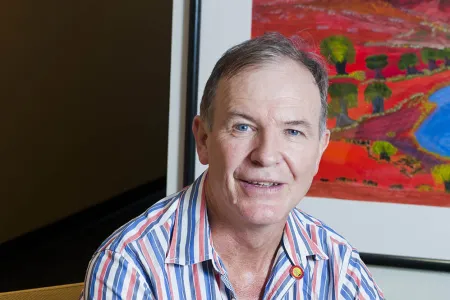Professor Stephen Garnett is globally recognized as an expert in three areas - on conservation management, particularly threatened species; on the importance of the equitable involvement of Indigenous Peoples to conservation; and on the governance of taxonomic lists.
In the field of conservation management he has, among other work, reviewed the extinction risk of all Australian birds every decade since 1990, each time producing action plans that have helped set the national agenda. His work with Indigenous Peoples is built on his leadership of a team that created the first global map of Indigenous Peoples lands.
In the field of taxonomy, he has made substantial contributions to the development of guidelines for transparent and collaborative governance of taxonomic lists, with the aim of ensuring that global taxonomic lists have the highest levels of reliability and accuracy and so are more likely to be adopted by users of taxonomic lists worldwide.
He also works at a regional level on various aspects of sustainability including renewable energy and thermal comfort. Professor Garnett has been honoured with several prestigious awards, including a Serventy medal by BirdLife Australia, of which he has been elected as a Fellow, and a Whitley Gold award in recognition of his outstanding contributions to science publication. He has also been appointed by parties to the Convention on Migratory Species as a co-counsellor for birds.
HDR project opportunity
Governance of global science
Science is a powerful intellectual force around the world, transcending political boundaries with ideas that affect us all. But how does international science govern itself? Who makes decisions and who gets a say in who those people are? Are some international science organisations more powerful than others, and why? These are the sorts of questions a PhD student can consider as part of a new scholarship opportunity at Charles Darwin University. The scholar would join a global team that is aiming to improve the governance of species lists, but their ambit would be much greater taking in the working of science organisations across the globe. We are open to applicants from any background – what we need is someone with an inquiring mind and a global vision.
